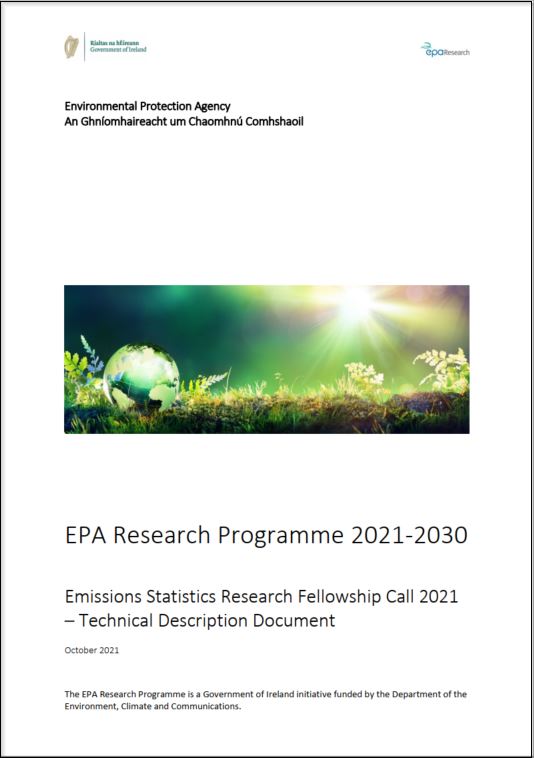Latest Research Publications
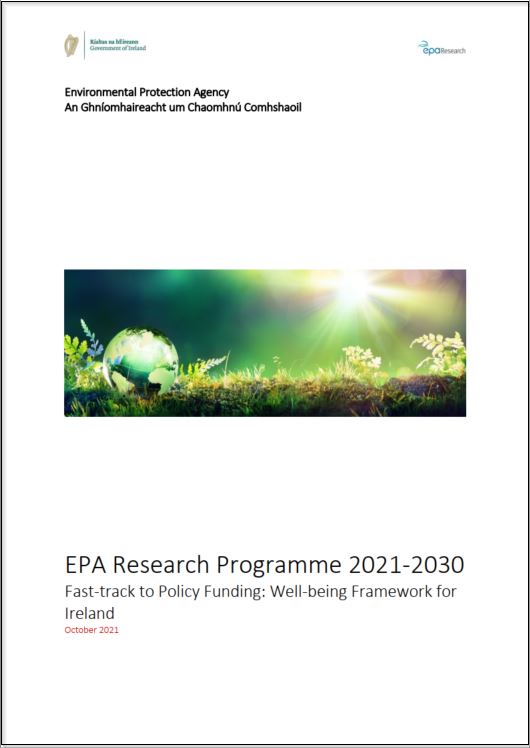
EPA Research Programme 2021-2030 Fast-track to Policy Funding: Well-being Framework for Ireland
Call 2021-05, October 2021
Year: 2021
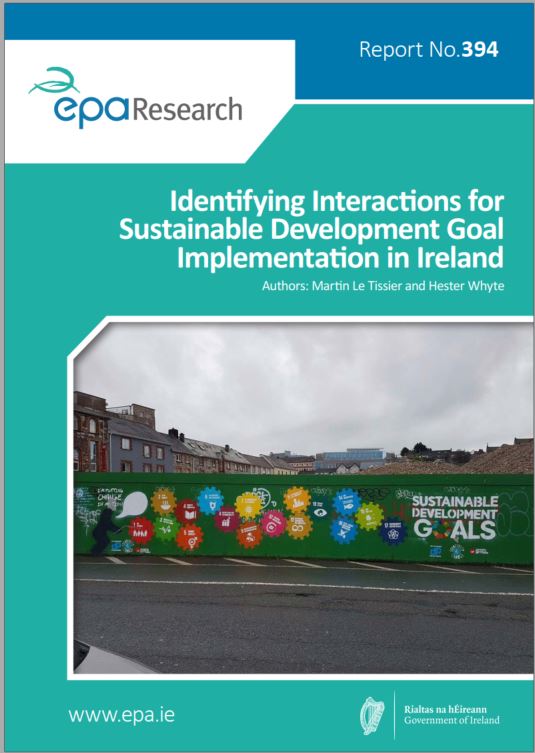
Research 394: Identifying Interactions for Sustainable Development Goal Implementation in Ireland
Authors: Martin Le Tissier and Hester Whyte, October 2021
Year: 2021
This report addresses how understanding of interlinkages between the Sustainable Development Goals (SDGs) of the United Nations Agenda 2030 and Ireland’s policy portfolio can advance understanding to meeting SDG targets and a “whole-of-government” approach to policy implementation.
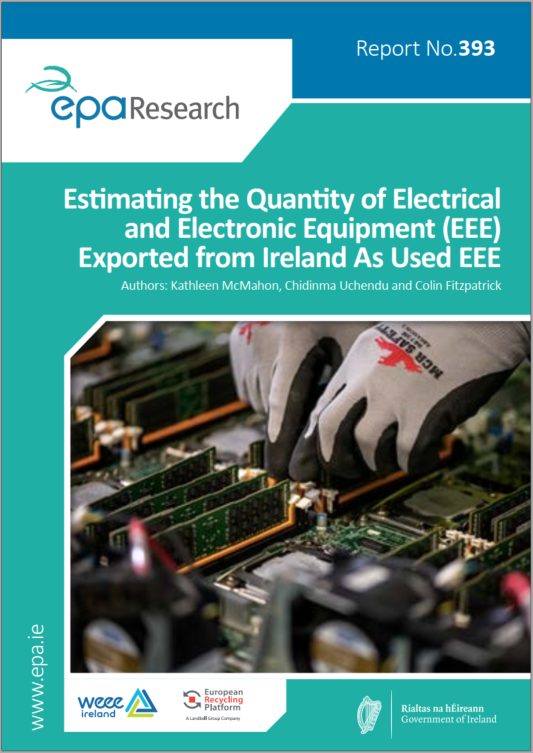
Research 393: Estimating the Quantity of Electrical and Electronic Equipment (EEE) Exported from Ireland As Used EEE
Authors: Kathleen McMahon, Chidinma Uchendu and Colin Fitzpatrick, October 2021
Year: 2021
Ireland has met or exceeded collection and recovery targets for waste electrical and electronic equipment (WEEE) in recent years. However, as targets have risen, Ireland’s stakeholders must identify and address challenges presented by WEEE that does not arise in collection. This research identifies two pathways by which UEEE is exported for the purpose of reuse, namely through the shipment of roll-on roll-off vehicles and through the shipment of professional IT equipment, and it aims to quantify the amount of UEEE exported through each pathway.
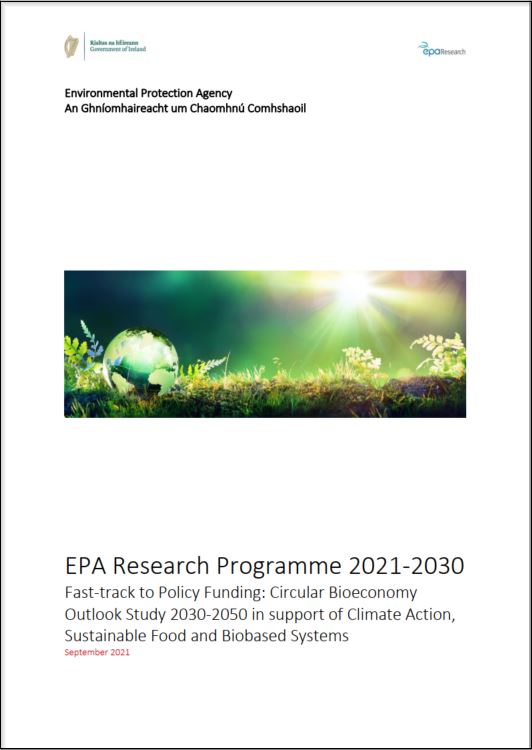
EPA Research Programme 2021-2030 Fast-track to Policy Funding: Circular Bioeconomy Outlook Study 2030-2050 in support of Climate Action, Sustainable Food and Bi
Call 2021-04, September 2021
Year: 2021
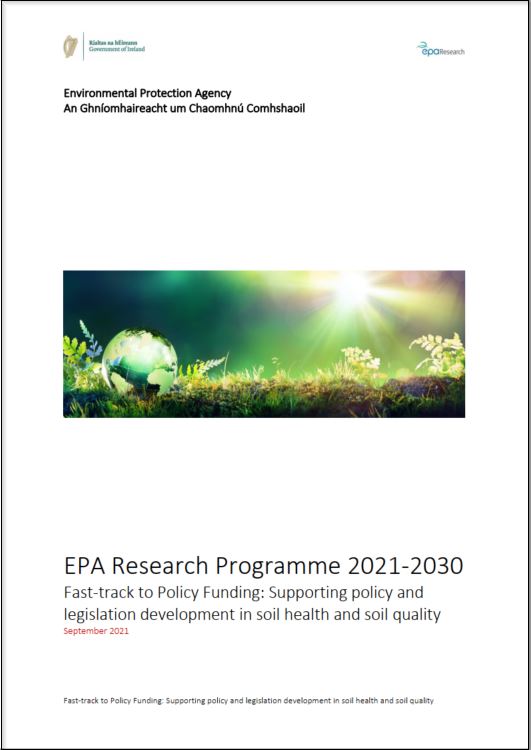
EPA Research Programme 2021-2030 Fast-track to Policy Funding: Supporting policy and legislation development in soil health and soil quality
Call 2021-03, September 2021
Year: 2021
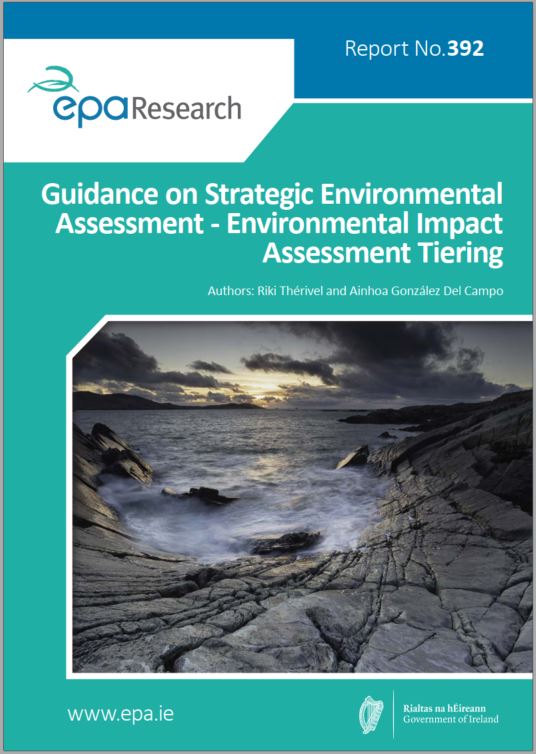
Research 392: Guidance on Strategic Environmental Assessment–Environmental Impact Assessment Tiering
Authors: Riki Thérivel and Ainhoa González Del Campo, September 2021
Year: 2021
This Guidance on SEA-EIA Tiering aims to improve the links between SEA and EIA, using a range of good practice examples. It focuses on improving communication between SEA and EIA: getting SEA practitioners to write SEAs with EIAs in mind, and EIA practitioners to refer to SEAs in their EIA Reports. It also identifies institutional issues that can set a context which restricts tiering, including ‘silo assessment’, lack of training, and restrictive legal requirements.
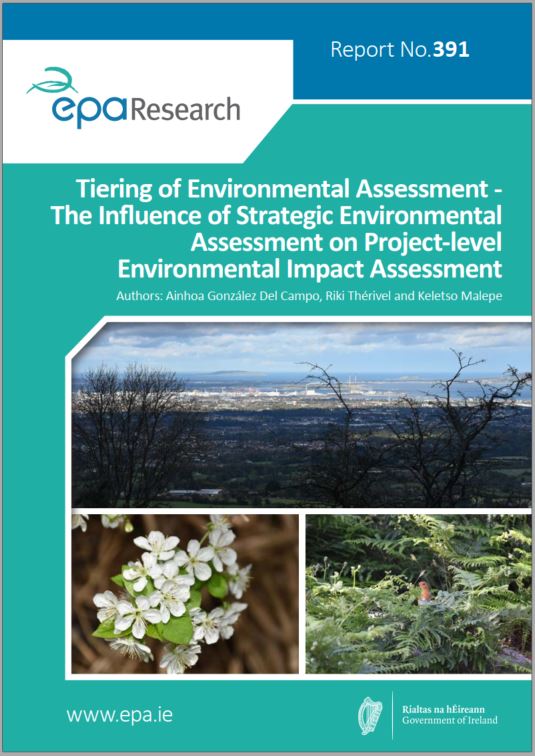
Research 391: Tiering of Environmental Assessment – The Influence of Strategic Environmental Assessment on Project-level Environmental Impact Assessment
Authors: Ainhoa González Del Campo, Riki Thérivel and Keletso Malepe, September 2021
Year: 2021
Strategic Environmental Assessments (SEAs) aim to identify and mitigate environmental impacts resulting from the implementation of plans and programmes before they are adopted. This research was based on a literature review, interviews with 28 international and Irish experts, and a review of 19 Irish case studies. The research identified a range of good practice approaches to impact assessment tiering, which can be summarised as better communication between SEA and EIA practitioners.
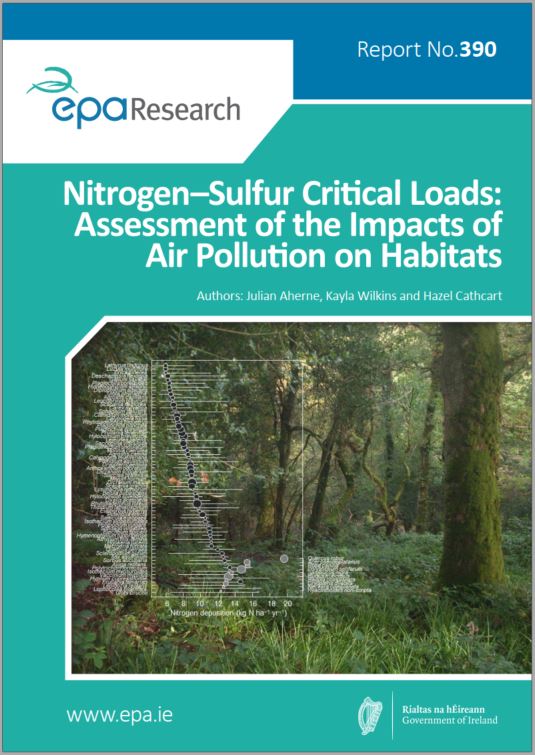
Research 390: Nitrogen–Sulfur Critical Loads: Assessment of the Impacts of Air Pollution on Habitats
Authors: Julian Aherne, Kayla Wilkins and Hazel Cathcart, September 2021
Year: 2021
Air pollution can have unacceptable impacts on the natural environment. In particular, elevated atmospheric nitrogen deposition can result in changes to the plant communities of natural and seminatural ecosystems, resulting in decreases in plant biodiversity. This project developed empirical critical loads of nutrient nitrogen for 17 Annex I habitats. The project analysis suggests that habitats within the Atlantic biogeographic region have critical loads at the low end or lower than existing UNECE recommended ranges for European habitats.
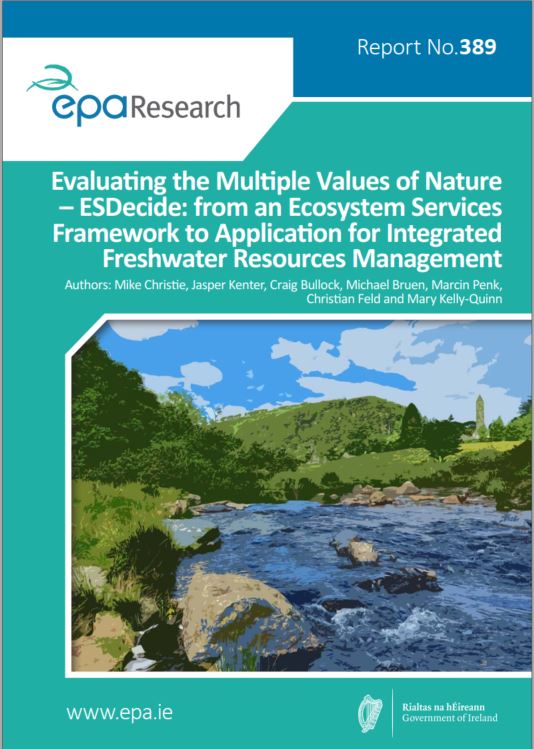
Research 389: Evaluating the Multiple Values of Nature – ESDecide: from an Ecosystem Services Framework to Application for Integrated Freshwater Resources Manag
Authors: Mike Christie, Jasper Kenter, Craig Bullock, Michael Bruen, Marcin Penk, Christian Feld and Mary Kelly-Quinn, August 2021
Year: 2021
The Water Framework Directive requires the EPA to monitor the quality of water in Ireland’s rivers and lakes. This research reviewed the multiple values and benefits of nature, often termed ‘ecosystem services’ or’ nature’s contributions to people (NCPs)’. It provides insights into the multiple ways people value rivers and associated ecosystem services/ NCPs. The research also developed a decision support tool to assess the impacts on ecosystem services/NCPs of alternative river catchment measures.
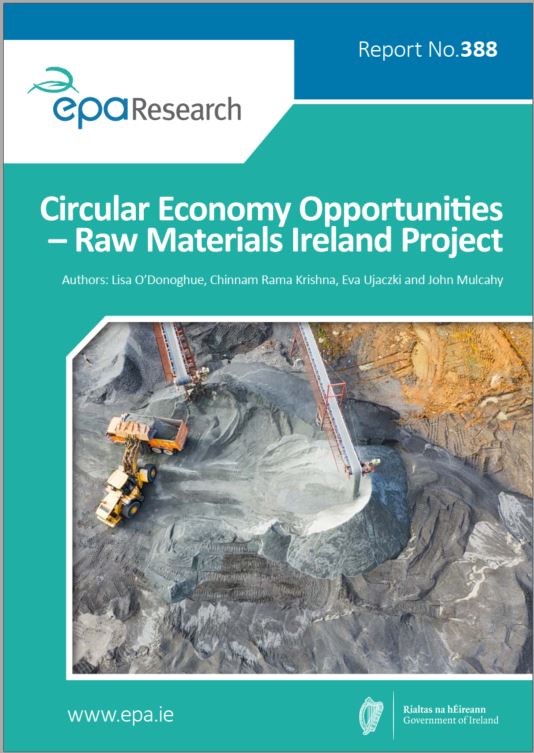
Research 388: Circular Economy Opportunities – Raw Materials Ireland Project
Authors: Lisa O’Donoghue, Chinnam Rama Krishna, Eva Ujaczki and John Mulcahy, August 2021
Year: 2021
Ireland is home to primary industries in mining, materials processing and power generation. Today, most waste outputs associated with these industries are either sent for disposal or exported. The research focused on techniques for mechanical and physical separation, to unlock valuable materials such as iron, aluminium, calcium and critical raw materials (gallium, indium and phosphorus).
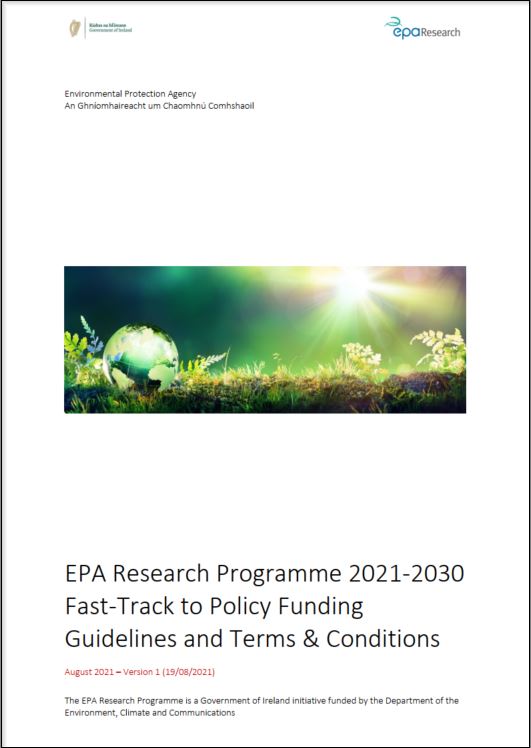
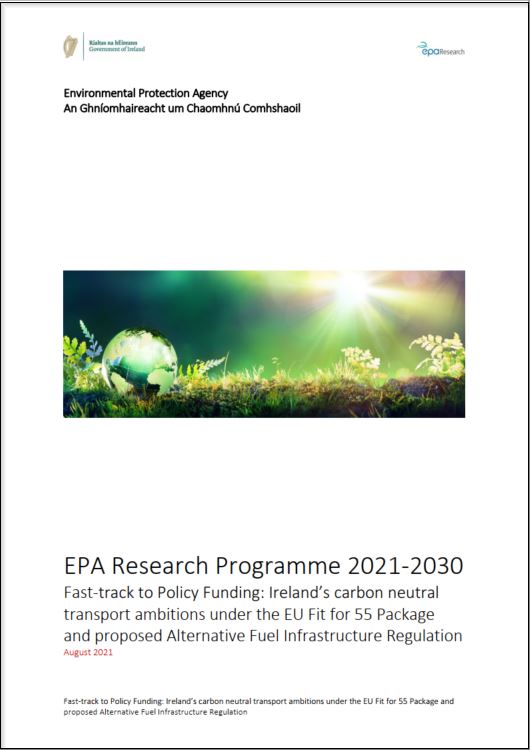
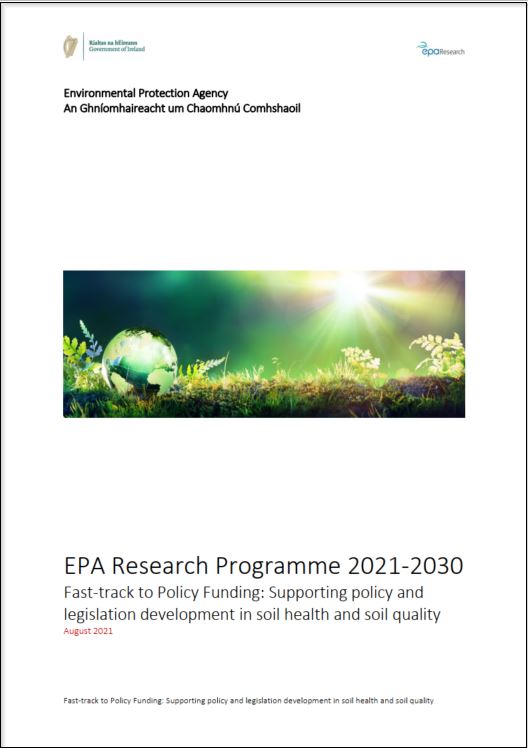
EPA Research Programme 2021-2030 Fast-track to Policy Funding: Supporting policy and legislation development in soil health and soil quality
Call 2021-01, August 2021
Year: 2021
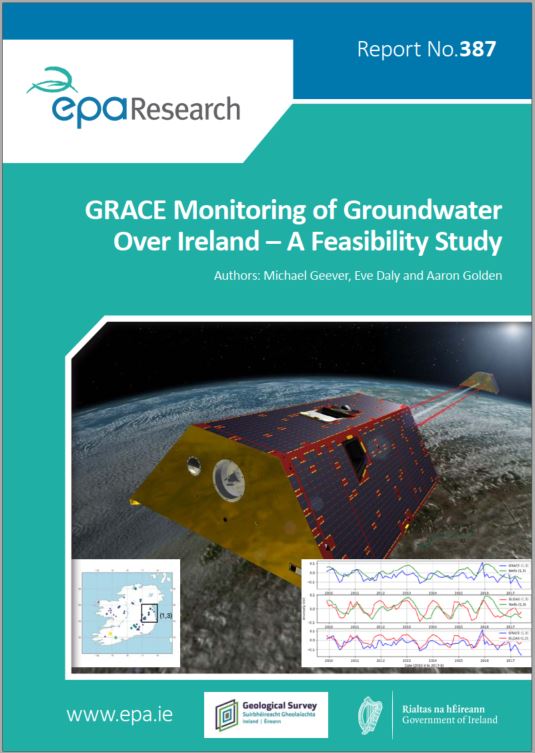
Research 387: GRACE Monitoring of Groundwater over Ireland – A Feasibility Study
Authors: Michael Geever, Eve Daly and Aaron Golden, August 2021
Year: 2021
Changing population trends, growing urbanisation and associated economic development increase pressure on our water resources. This project investigates the feasibility of using space-based observations of gravitational anomalies, obtained by NASA’s Gravity Recovery and Climate Experiment (GRACE), to assess groundwater variations at a regional level across the island of Ireland. The report fully documents ways of accessing, processing and visualising GRACE gravitational anomaly data, and outlines a means to integrate data from NASA’s land surface model with data from the EPA’s HydroNet groundwater well network.
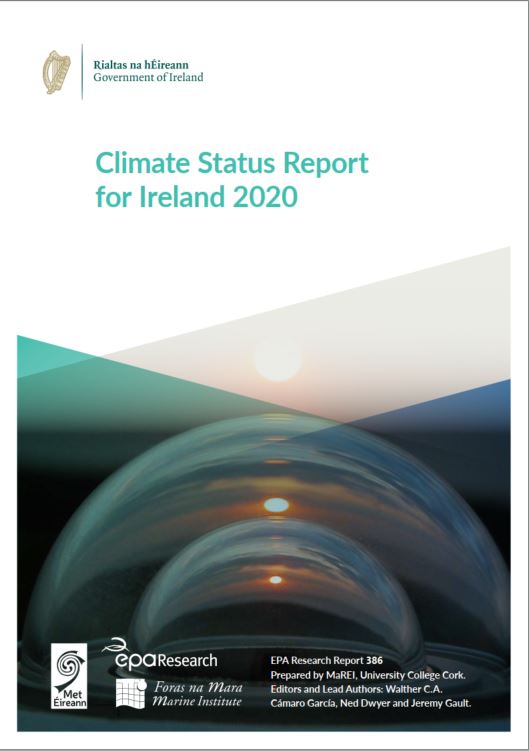
Research 386: The Status of Ireland’s Climate, 2020
Editors and Lead Authors: Walther C.A. Cámaro García and Ned Dwyer, August 2021
Year: 2021
As an island on the western boundary of Europe facing the Atlantic Ocean, Ireland is ideally positioned to measure and assess ongoing climate change. The first Status of Ireland’s Climate report was published in 2013. This second status report provides an update, incorporating new datasets and analyses as well as reporting ongoing climate observations over the last 7 years.
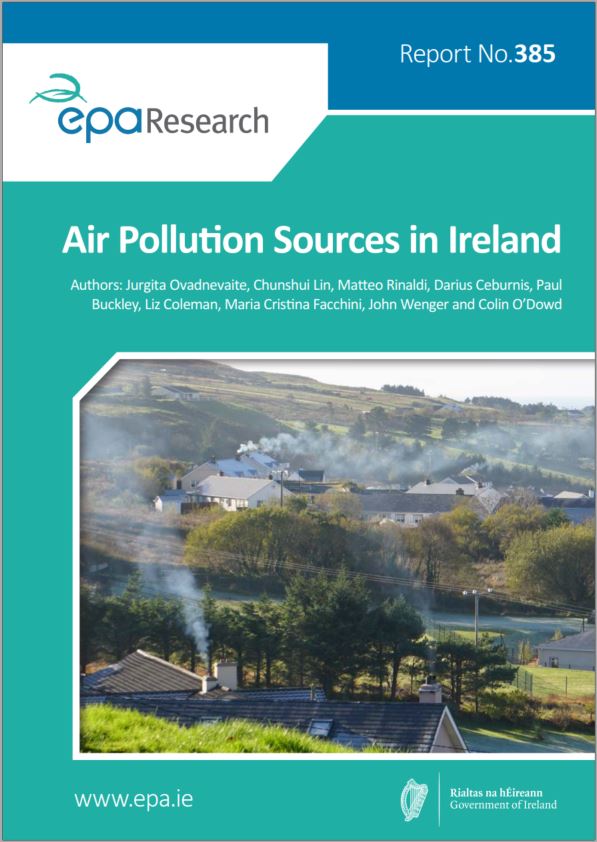
Research 385: Air Pollution Sources in Ireland
Authors: Jurgita Ovadnevaite, Chunshui Lin, Matteo Rinaldi, Darius Ceburnis, Paul Buckley, LizColeman, Maria Cristina Facchini, John Wenger and Colin O’Dowd, July 2021
Year: 2021
The project successfully established the AEROSOURCE network, comprising three sophisticated aerosol mass spectrometer nodes positioned in strategic locations: Carnsore Point (regional background), Dublin (urban environment) and Mace Head (marine background). It enhanced the National Transboundary Air Pollution Network with near real-time aerosol chemical speciation (including organic matter) and source apportionment capabilities.
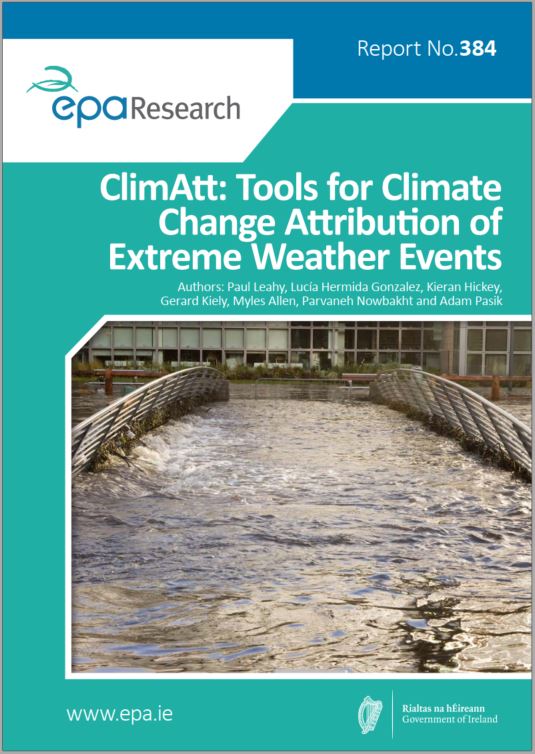
Research 384: ClimAtt: Tools for Climate Change Attribution of Extreme Weather Events
Authors: Paul Leahy, Lucía Hermida Gonzalez, Kieran Hickey, Gerard Kiely, Myles Allen, Parvaneh Nowbakht and Adam Pasik, July 2021
Year: 2021
Extreme weather events, such as heavy or prolonged rainfall events, droughts and heatwaves, have the potential to cause significant social and economic disruption in Ireland. The ClimAtt project has examined the state of the art in climate change attribution of extreme weather events. Met Éireann’s observational records have been used to test and validate several climate model datasets for attribution purposes. The most appropriate datasets and methods to use to investigate the influence of climate change on extreme weather events occurring in Ireland have been recommended.
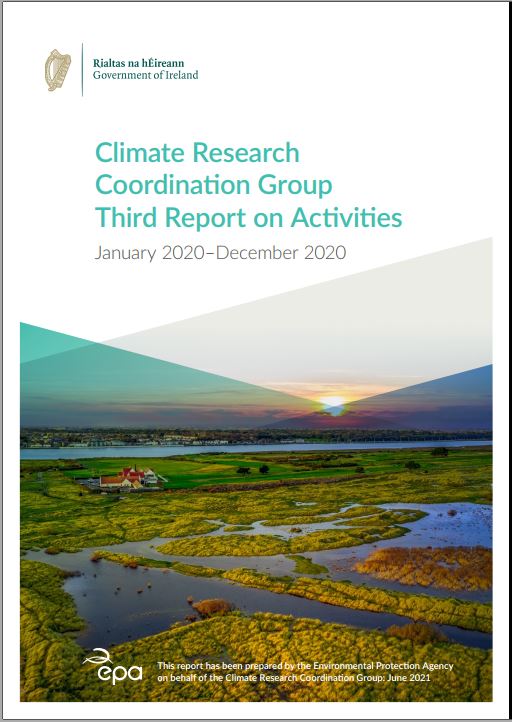
Climate Research Coordination Group: Third Report on Activities: January - December 2020
This report has been prepared by the EPA on behalf of the Climate Research Coordination Group, July 2021
Year: 2021
This third report presents a summary of the Climate Research Coordination Group’s activities in 2020.
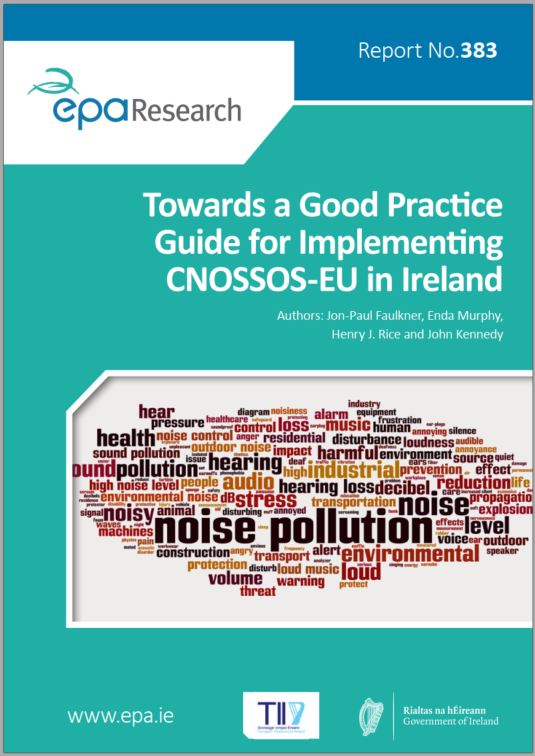
Research 383: Towards a Good Practice Guide for Implementing CNOSSOS-EU (Common Noise Assessment Methods in Europe) in Ireland
Authors: Jon-Paul Faulkner, Enda Murphy, Henry J. Rice and John Kennedy, June 2021
Year: 2021
This guide addresses noise pollution from transport as a significant environmental pressure and public health concern. The guide is primarily targeted at practitioners charged with implementing the 5-yearly strategic noise mapping requirements of the Environmental Noise Directive (END). The guide also supports relevant authorities by providing robust analysis and instruction on how to implement strategic noise mapping under CNOSSOS-EU.
